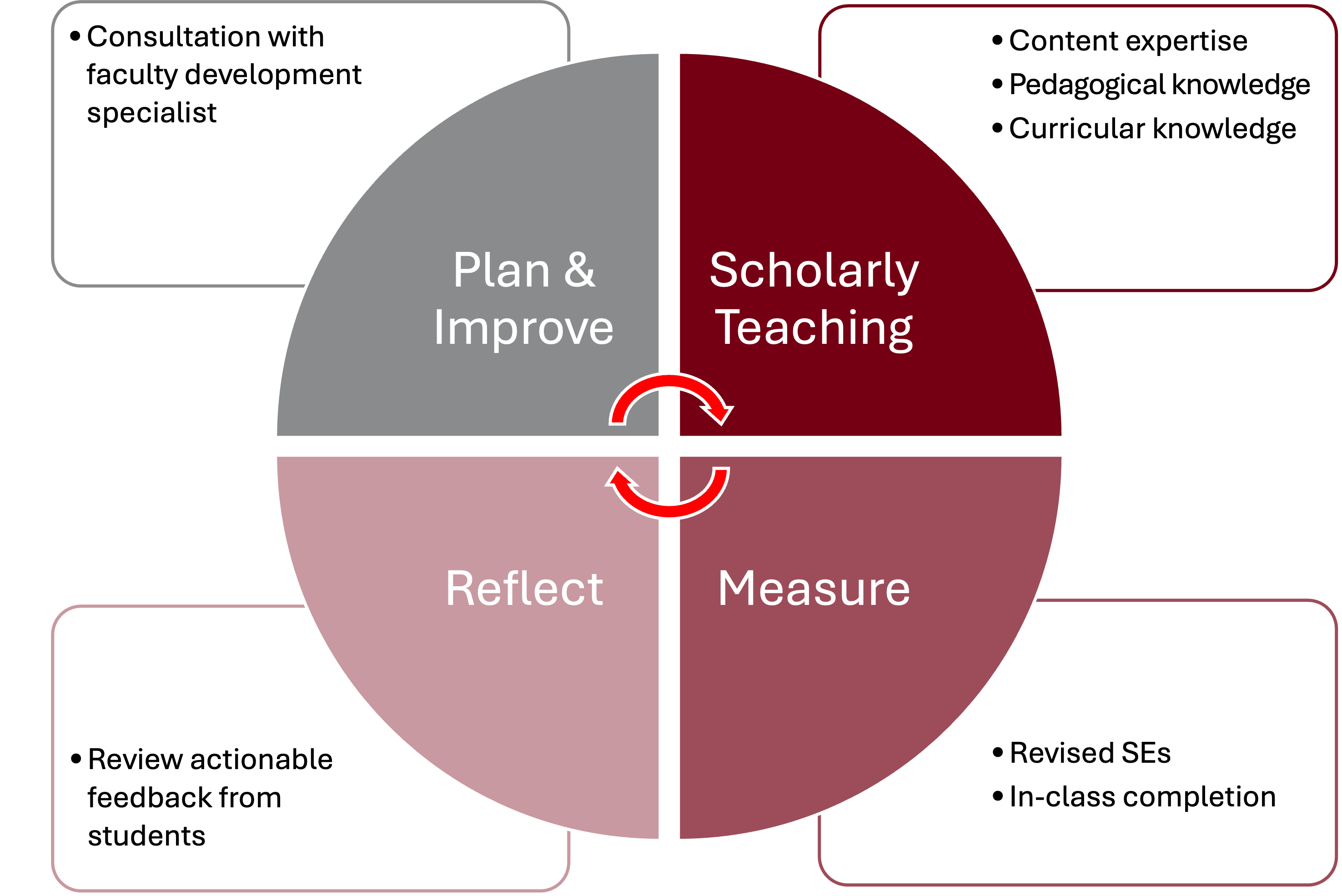The Chancellor and Vice Chancellor, in collaboration with the Chair of the Faculty, Teaching + Learning Lab (TLL), and the Registrar’s Office, are launching a new, one-year pilot of research-based revisions to MIT’s standard subject evaluation (SE) process.
One of the goals of the pilot is to better support the tenure and promotion process for faculty at MIT with more accurate and relevant SE data. The general consensus1 is that the use of traditional SE data as a central metric of teaching in higher education has several major shortcomings, including potential bias and the lack of correlation between instructor and subject ratings and student learning. Compounding these concerns, the response rates for SE at MIT have steadily decreased over time to an average of less than 50% Institute-wide.
In the spring of 2025, we plan to offer a subset of departments a pilot version of new, research-based, end-of-semester SE questions. Following a national shift,2 the new set of questions is intended to collect more reliable, meaningful, and useful information from students about their learning experience in subjects. While changing the questions may have an impact on departmental evaluations of faculty, the goal of the pilot is to inform broader reconsideration of MIT’s SE practices and their impacts across the Institute. The new process is outlined below.

- cf., the September 2019 Statement on Student Evaluations of Teaching American Sociological Association September 2019. See also this Bibliography of Research on Gender and Racial Bias with Teaching and Evaluations compiled by D.D. Shorter, UCLA. ↩︎
- The Association of American Universities recently launched an initiative to support STEM departments in the reconsideration and revision of the evaluation of teaching. Duke University, Stanford, and the Statistics Department at Berkeley (and many others) have revised their end of semester teaching evaluations to collect more accurate and useful information from students. ↩︎
If your department is interested in learning more about this pilot study, please see our FAQ page and/or reach out to sepilot@mit.edu.

